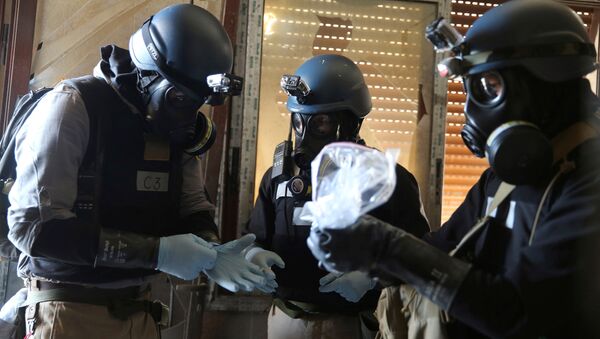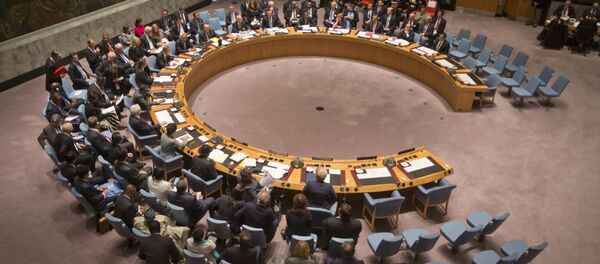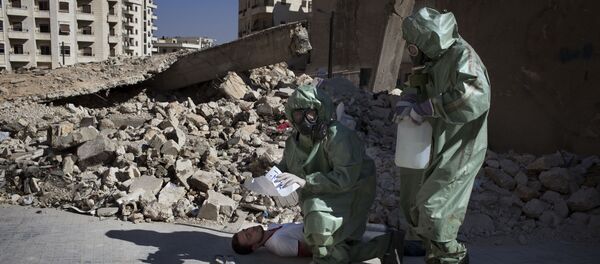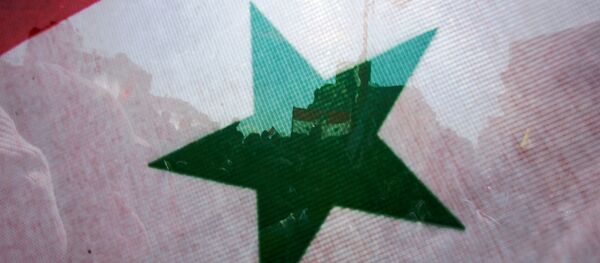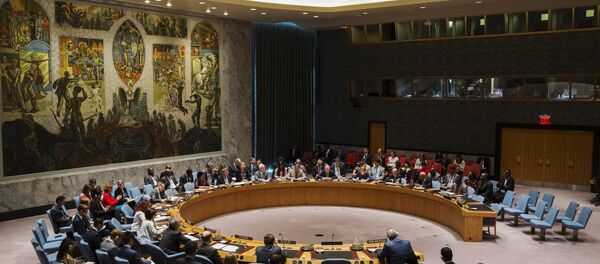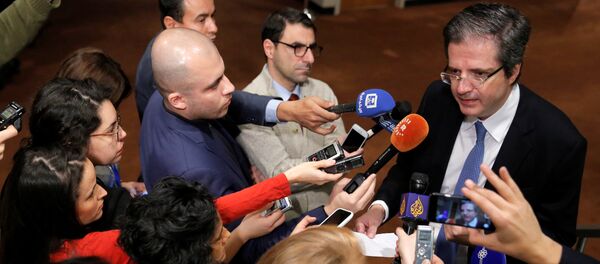In August 2015, the Security Council adopted resolution 2235, aimed at identifying who was responsible for a series of chemical attacks carried out in Syria between April 2014 and August 2015. The UN established the Organization for the Prohibition of Chemical Weapons-UN Joint Investigative Mechanism, charging it with creating an investigative report on the attacks. Investigators reached their conclusions in August 2016.
Speaking to Radio Sputnik about the vetoed resolution and the OPCW-UN report cited therein, Charles Shoebridge, a respected independent security expert specializing in intelligence and terrorism, explained that the OPCW-UN investigation contained findings which were very different from what was presented to the public in the mainstream media.
"When you actually go to the report itself, which interestingly, only a few of the Western media outlets actually link to, you find that this report, unsurprisingly for professional investigators, is absolutely full of caveats and reservations," the commentator pointed out.
"In other words, the evidence wasn't sufficiently good to declare that Syria had dropped chlorine to a standard that could be considered 'strong', or 'overwhelming'."
The significance of this detail could not be overestimated, Shoebridge stressed. After all, "when one thinks about what the UN Security Council actually is in this context, it's actually acting as the world's most superior court; it has the power to impose sanctions, and even to authorize war in some circumstances."
Therefore, the analyst noted he was quite surprised to hear, "on such a basis of low standard of proof of evidence, that people are saying that this is sufficient to put in place punishments for a government. I think that was part of the case that Russia and China made, along with the very principled point of not interfering in [other countries'] internal affairs."
Furthermore, the expert pointed out that "as the report said, a lot of its evidence was reliant on first responders giving information to investigators; because of the security situation, the investigators were not able to visit the scenes these attacks themselves, and were reliant on what the report calls 'first responders', and what we know to be the White Helmets."
These White Helmets, Shoebridge recalled, were actually set up by a UK ex army officer and are funded by the British and US governments, have been linked with radical Islamist terrorist groups, and over "the last 3-4 years have put out a stream of anti-Assad, anti-Russia propaganda."
"For example, they [confirm] that there were multiple contradictory reports, massive amounts of inconsistencies, that it was obvious in some instances that items had been placed at the scene when they were talking to witnesses. In other words, [often times, the] scenes of these so-called chemical weapons attacks have been fabricated. Yet none of this has really appeared in most of the Western media's coverage," the security expert complained.
Russia China veto Syria 'chlorine use' sanctionshttps://t.co/FZUEqwoBdS
— Charles Shoebridge (@ShoebridgeC) 28 февраля 2017 г.
UN report itself noted weakness of evidencehttps://t.co/EAuyxeEzfP
Furthermore, pointing to chlorine's extremely low lethality in most situations, Shoebridge noted that conventional high explosives are far more effective as tools of destruction. This, he noted, "begs the question: why would anybody use chlorine for this kind of attack?"
In fact, the expert explained, "the issue with chlorine is that isn't a chemical weapon as such; it's only being investigated because it's been alleged to have been used as a chemical weapon. And the reason why it's so useful to put forward this propaganda at all is because chlorine is so readily available – it's used in so many industrial and business processes," and has a number of everyday uses, like water purification, as well. Given its widespread usage, "it's very easily available to get for rebels to fabricate these kinds of attacks."
Ultimately, the analyst stressed that "there's not much doubt that chlorine has been used in some of these instances – the question is: Who by?" The rebels, he noted, had every incentive to do so, "notwithstanding that chlorine is utterly ineffective, certainly far less effective than conventional weapons." The government, on the other, did not, since it threatened Western intervention, regime change, or in this case, more sanctions.
For the rebels, Shoebridge said, the ultimate goal "is either to provoke a Western response to facilitate regime change…or alternatively, to push for the UN to impose a no-fly zone over Syria, or the parts that rebels occupy; they [claim] that this would stop these kinds of attacks from taking place, but of course the real reason…[is that] it has been the use of air power…by Syria and more recently by Russia, which has proved so effective against the rebel forces."
Trump, the commentator said, "is still surrounded by advisors, surrounded even by his cabinet ministers, many of whom are anti-Russian, and whom remain very much wedded to the interests of Israel and countries such as Saudi Arabia and Qatar, which have such financial power in the United States, the UK and elsewhere. They of course have their own agenda in backing Syria's rebels, and still seeking to have Assad toppled or removed from the equation of any future Syria."
